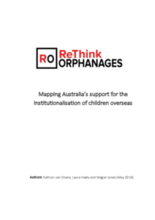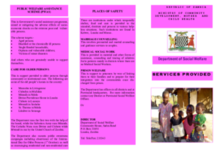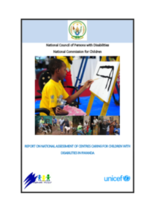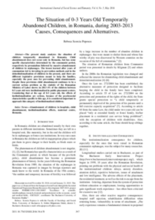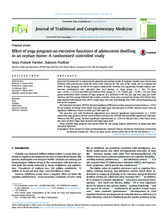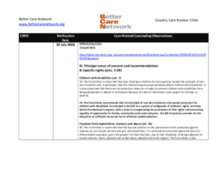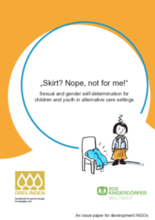Displaying 991 - 1000 of 1510
This report “seeks to map Australia’s contribution to residential care institutions for children overseas across a number of sectors and identify opportunities for strategic engagement with various stakeholders in the Australian context.”
This brochure outlines the Public Welfare Assistance Scheme, including services related to inspection of child-care facilities and adoption.
The purpose of this assessment was to review service delivery in centres for children with disabilities in Rwanda. This report establishes relevant baseline information on institutional capacity including services offered, staffing levels and other parameters regarding care of children with disabilities.
This study used a secondary analysis of data from 2003 to 2013 to better understand the situation of children temporarily abandoned in Romania. It looked at data for children aged 0-3 years who were abandoned in different hospital units or institutionalized in public orphanages or public and private foster care institutions.
This study implemented a 3-month yoga program with orphan adolescents in Bangalore, India and evaulated the impact of the program on adolescent executive functioning.
In this study, clinical program directors from 59 residential treatment facilities in the US responded to an online survey addressing the representation of adopted youth currently being served by their organization, the extent to which adoption issues are incorporated into clinical intake and treatment processes, and the training needs of clinical staff related to adoption.
This study explores the determinants of child-parent separation and the consequences of existing alternative care arrangements from the perspectives of adults and young people in Laos.
This country care review includes the care related Concluding Observations adopted by the Committee on the Rights of the Child and the Committee on the Rights of Persons with Disabilities.
This issue paper explores the experiences of lesbian, gay, bisexual, transgender and intersex (LGBTI) children and young people in alternative care settings and highlights some promising practices.
This study examined (1) how perceived social support (PSS) varied across orphan‐related characteristics (e.g., orphan status, such as single, maternal or paternal, and their living environments, such as in child‐headed households, on the street, in an orphanage or in a foster home) and (2) the relative importance of sources of PSS (relatives/community/adults and peers) and functional social support (emotional/informational/instrumental and social) and its association with emotional well‐being and mental distress.

